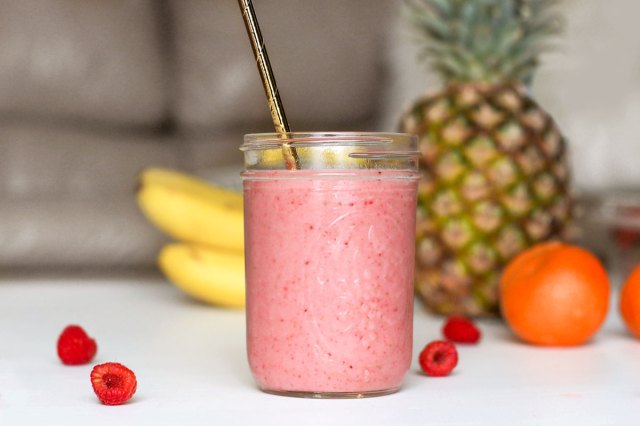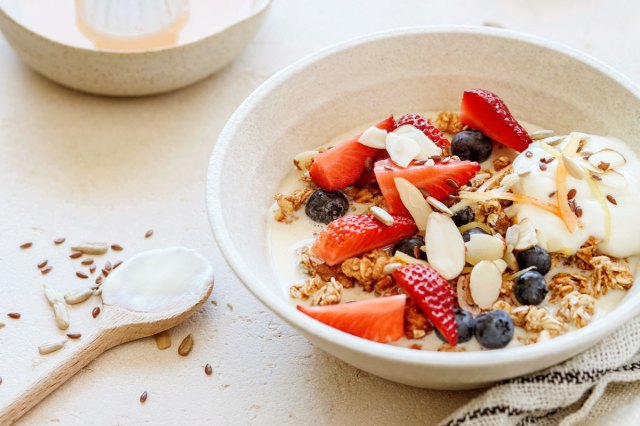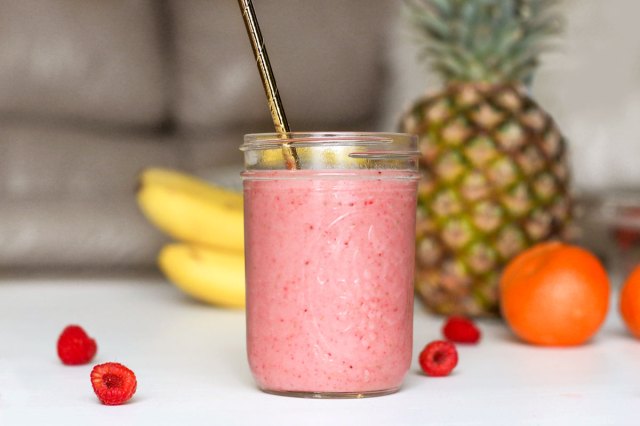Few things are more satisfying than biting into a sweet, juicy apple fresh off the tree. But with 19 grams of sugar in one apple — about quadruple the amount in one Oreo cookie and more sugar than one scoop of vanilla ice cream — have we been misled into thinking that fruit is healthy? Is eating fruit actually bad for our health? Unsurprisingly, the answer is no. Fruit provides valuable fiber and other beneficial nutrients — and the sugar in each serving isn’t as bad for you as the amount implies.

The Sugar in Fruit Is Different
Fruit contains naturally occurring sugar, not added sugar that you find in sweet treats like cookies and cake. While the natural sugars in fruit launch the same metabolic process as food with added sugar, the fiber in fruit slows the rate at which your body absorbs the fruit’s sugar content, meaning the fructose hits your liver slower for processing.
However, not all fruit is created equal; some have more sugar than others. Fruits with a low amount of sugar include strawberries, papayas, cantaloupe, and raspberries, and fruits with a high amount of sugar include watermelon, pears, grapes, and mangoes.

“Fruit” Doesn’t Mean “Fruit Juice”
Though eating fruit is healthy, that doesn’t mean you should drink a lot of fruit juice — even if it’s 100% juice or OJ with lots of pulp. Juice doesn’t have the same fiber content as a piece of fruit. Without fiber, your blood sugar levels can shoot up after drinking fruit juice, just like after a glass of soda.
If you want to drink fruit, try a smoothie instead of juice to get the proper nutrients and fiber. However, you should drink your smoothie as soon as possible after you make it, because the longer it sits, the more its healthful components become less stable.

Limit Dried Fruit
Fresh and frozen fruit have the same nutritional value. In fact, fruit that was frozen soon after harvest may contain more nutrients than fresh fruit that’s been transported to the supermarkets. However, dried fruit is slightly different. While it still delivers lots of nutrients, you shouldn’t overeat it.
Dried fruit shrinks in size because it has less water. This lack of hydration concentrates the fruit’s sugar and calories, making it high in glucose and fructose. Common dried fruits contain 38% to 66% sugar. Consuming too much fructose can have adverse health effects, such as weight gain, type 2 diabetes, and heart disease, so limiting your intake of dried fruit is best. Also, try to stay clear of “candied” dried fruits, which have added sugar.
Reader Favorites

Fruit Should Be Part of a Balanced Diet
Though fruit is healthy, it shouldn’t make up more than 30% of your daily food intake — you need to eat other foods to get enough protein, vitamin B12, calcium, vitamin D, and omega-3 fatty acids in your diet. And do your best to eat various fruits — each has its own nutritional profile. Going for a mixed-color palette in fruit consumption is a great way to start.
Featured Image Credit: Element5 Digital/ Unsplash
More From Our Network
Better Report is part of Optimism, which publishes content that uplifts, informs, and inspires.
















